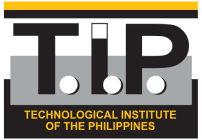

Master’s degree in Information Systems at T.I.P. is developed to give the students strong foundation both in theories and applications needed in satisfying industry-desired competency in the field of Information Systems. MIS students will be able to experience unified approach in acquiring the technical knowledge and skills in addressing and solving organizational or business-related challenges and problems. T.I.P. has lined-up the most qualified master’s and doctorate degree holder professors of the institution.
The curriculum is designed in such a way that the students will develop a balanced mastery in business and technology to deal with the ever-growing and becoming complex information systems. The courses will directly link the learnings of the students to the real world organizational and business scenario, which they can apply to their current and future workplaces as IT professionals and administrators.
The curriculum integrates elements like software applications, business laws and ethics, management, decision making, and other technology and business components, which will enable the students in running today’s business. The curriculum also intends for the students or professionals to be technologically up-to-date by offering them specializations which are essential for business administration, communication, and decision support. At the terminal part of their study, students are required to produce their independent study which is expected to be with relevant impact to the IS industry.
PROGRAM EDUCATIONAL OBJECTIVES
Three to five years after graduation, the Master's degree in Information Systems alumni shall:
- have advanced their practice or achievement in the field of Information Systems and/or other endeavors or advocacies, including technopreneurship, supported by their acquired information systems education;
- be globally competitive through
- living by the T.I.P. mission values, engaging in lifelong learning, and practicing continuous quality improvement in their personal lives;
- continuously scanning, adopting, and building on the best practices in their field;
- contributing to the advancement of learning in the field of Information Systems through research and professional practice.
STUDENT OUTCOMES
| SO 1 | Develop solutions to complex IS problems with full independence and/or in teams of multidisciplinary field |
| SO 2 | Demonstrate proficiency in conducting research in the field of IS |
| SO 3 | Communicate effectively in a variety of professional contexts. |
| SO 4 | Demonstrate effective management skills in an IS project in a specialized or multidisciplinary field |
| SO 5 | Apply ethical and professional principles in the practice of IS |
| SO 6 | Demonstrate the ability to continuously improve skills and knowledge towards professional development. |




